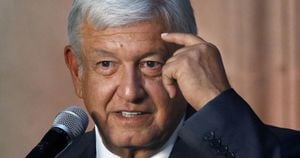NATO Secretary General Mark Rutte has issued stark warnings about the alliance's current preparedness for potential threats from Russia and China, calling for urgent increases to military spending and advocating for what he describes as a 'wartime mentality.' Speaking on Dec. 12, Rutte stressed the importance of NATO members adapting their defense strategies to counter the accelerating security challenges posed by authoritarian states.
Rutte's comments come at a time of heightened tension, particularly as Russia gears up for what appears to be a protracted confrontation with Ukraine. He pointed out, "Russia is preparing for a long-term confrontation with Ukraine and with us," underscoring the significant strategic shift underway.
The urgency of Rutte’s message lies in the fact he believes NATO's current defense spending target of 2% of GDP is insufficient. Looking back to the Cold War, he noted, NATO members once allocated over 3% of their GDP to defense, and he argues it's time to return to such levels. He stated, "We are not prepared for what awaits us in four or five years. The danger is heading our way at full speed," emphasizing the potential consequences if NATO doesn’t adapt swiftly.
According to Rutte, the current geopolitical climate is concerning; not only is Russia preparing for increased military spending— projected to reach 7-8% of its GDP by 2025— but the collaborative security threats from Russia and China are growing. The Secretary General warned of the rising costs of stagnation, stating, "If we continue with stagnated investments, we will face severe repercussions on our deterrence capabilities within the next few years." The implication is clear: NATO must invest now to mitigate risks later.
Rutte's address also tackled the issue of military industrial preparedness, pointing to existing gaps within NATO's defense capabilities resulting from years of underfunding. He advocates for joint procurement efforts across Europe, insisting it is not just about increasing spend, but spending effectively. "The financial impact will be enormous if we do not act together," he insisted, pointing to the collaborative potential within NATO member states.
Against this backdrop of heightened military readiness, Rutte has not shied away from addressing the influence of U.S. politics on NATO’s future. With Donald Trump poised to return to the White House, there are concerns about shifting U.S. policies, particularly how they relate to European defense commitments. Rutte has expressed worries over the potential ramifications of U.S.-Russia negotiations, warning, “If Putin emerges as the winner from these talks, it will be a bad deal for Europe.”
These remarks signal his commitment to maintaining European autonomy in defense matters, irrespective of U.S.-Russian dynamics. He insists NATO's decisions on defense must stem from a common need to protect member states rather than from external political pressures.
Rutte also addressed the pressing need for NATO to look beyond just the immediate threats posed by Russia. He highlighted the increased military activity from China, cautioning about its growing assertiveness, especially concerning Taiwan. "We need to be clear-eyed about China’s ambitions," Rutte cautioned, signaling the broader geopolitical challenges on the horizon.
One key takeaway from Rutte's address is the acknowledgment of how the outcomes of the current war could reshape international relations. With the dynamics of NATO's spending and preparedness under scrutiny, the alliance is at a significant juncture. To navigate these challenges successfully, Rutte will need to rally member countries around the shared vision of increasing military budgets and committing to collective security.
Echoing sentiments from other NATO officials, the need for European states to take greater responsibility has never been more pressing. Future discussions among European NATO foreign ministers reportedly center on progressively raising the alliance's defense spending target to 3% of GDP by 2030, illustrating the urgency to bolster capabilities.
The calls for increased investment and shifts toward enhanced military readiness encapsulate the alliance's response to both historical lessons from the Cold War and contemporary threats. For now, the mantle is on NATO and its member states to respond decisively and uphold security commitments to deter potential adversaries.



